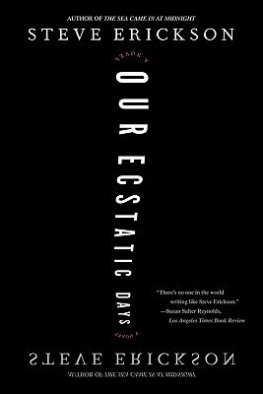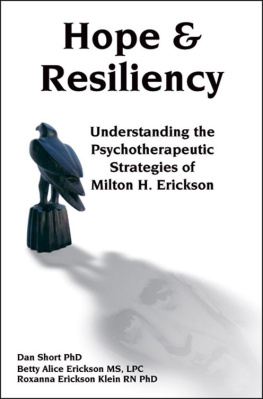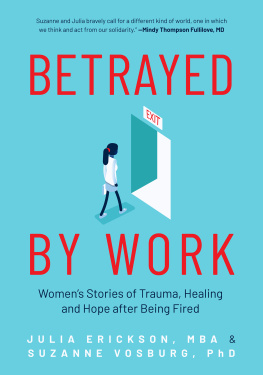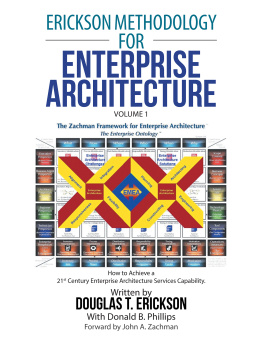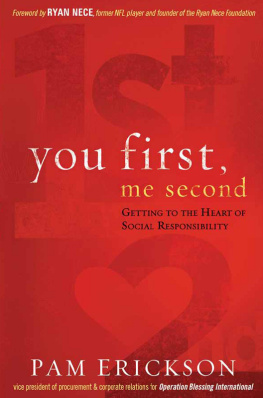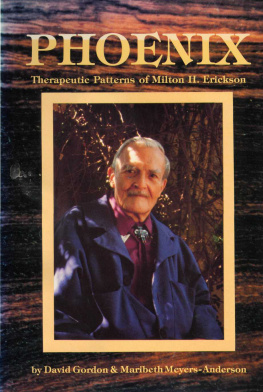Foreword
By Scott D Miller Ph.D.
I was 24 years old when I entered graduate school in psychology. It was an exciting time and I was prepared to learn the keys to helping others suffering from mental, emotional, and behavioral difficulties. Some four years later, I graduated. Sitting opposite the people I was now qualified to help, I often felt plagued by the feeling that I must have missed that one crucial day in school when they had taught everyone how it all workedthe secret to successful psychotherapy.
Much of what I learned seemed so generic: listen, start where the person is at, accept them as they are, and so on. I went to workshops, read books, even moved across the country in my effort to better understand how to be effective. I was soon overwhelmed by both the scope and complexity of theories and methods available for describing and doing therapy. Eventually, I lucked into a position with a team of talented thinkers and practitioners working together to develop their own treatment approach. The name doesnt matter. I finally had what Id long been searching for: direction and clarity.
Thanks to the team and the countless hours spent watching and performing the approach, I eventually mastered the method. I could do it in my sleep. No matter the person or presenting problem, I was confident I could help. I knew what to do.
As a group, we invited two researchers from outside the agency to follow up with our clients and evaluate the efficacy of model we had developed. At the conclusion of their study, they returned, asking whether we wanted to hear the good or the bad news first? Unable to imagine what the latter might be, we opted to hear the former.
What youve developed here, they told us, works. This came as no surprise to any members of our teamafter all, we had met with the clients ourselves, knew we were effective. When asked about the bad news, they continued, No more effective than any other approach thats been developed over the last 100 years. It was a blow, to say the least. More important, it served to undermine my long held belief that healing was a matter of figuring out the right method to apply to the problem at hand.
Decades of subsequent research have confirmed my disillusionment, at the same time documenting that the single best predictor of treatment outcome is client engagement. Said another way, whatever we do that facilitates participation, increases the chance of a positive result. Here, the key, it turns out, is being with people in a way that makes them want to be who they are with you!
Like other simple ideas, this one is easier said than done.
Rather than diagnosing problems and applying protocols, learning to Just do Good Workas Rob McNeillys guide advisesrequires thoughtful and ongoing, planning and reflection. Read this brief treatise in an hourwhich one can easily doand almost certainly, you will get little from it. Take one paragraph or page at a time, and it will transform your development as a helper and healer.
Scott D. Miller, Ph.D
Director, International Center for Clinical Excellence
The Short Version
Accept each client as a legitimate other.
This does not require approval or agreement, but simply recognising that at this moment, they are who they are.
Listen to each client for what they want.
This does not require that we go along with what they want, but simply explore possible learning opportunities with them.
Maintain a personal mood of expectancy.
This does not require being optimistic or expecting a positive outcome, but simply being open to the possibility that at any moment, for no good reason, a useful change can happen.
When in doubt, ask.
Some Background
My father was part of a humble family of nine children in Motherwell, now a suburb of Glasgow, Scotland. He had four brothers, two of whom were tipplers and two were Plymouth Brethren preachers. He liked simple pleasures and was nearly totally lacking in ambition. I like my whisky, and my wife still has to remind me from time to time to get off the pulpit.
My mother was part of a humble family of four children in Geelong near Melbourne, Australia. She was very ambitious for her children and instilled in us the importance of hard work and self-reliance.


